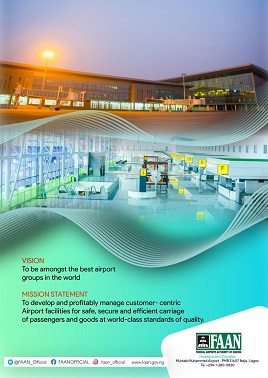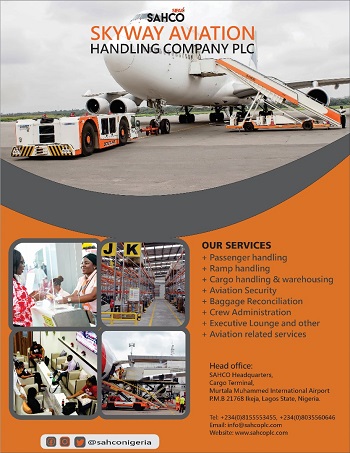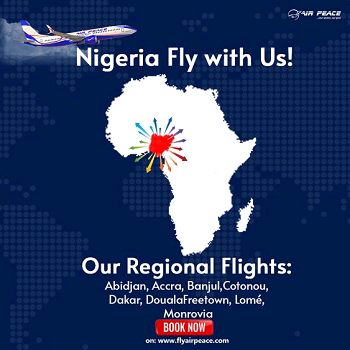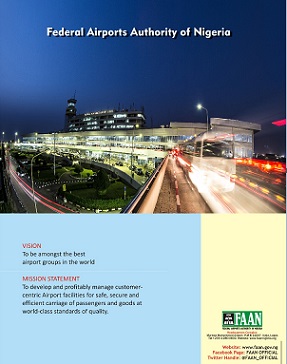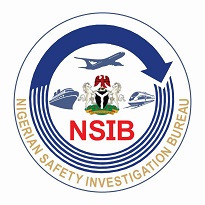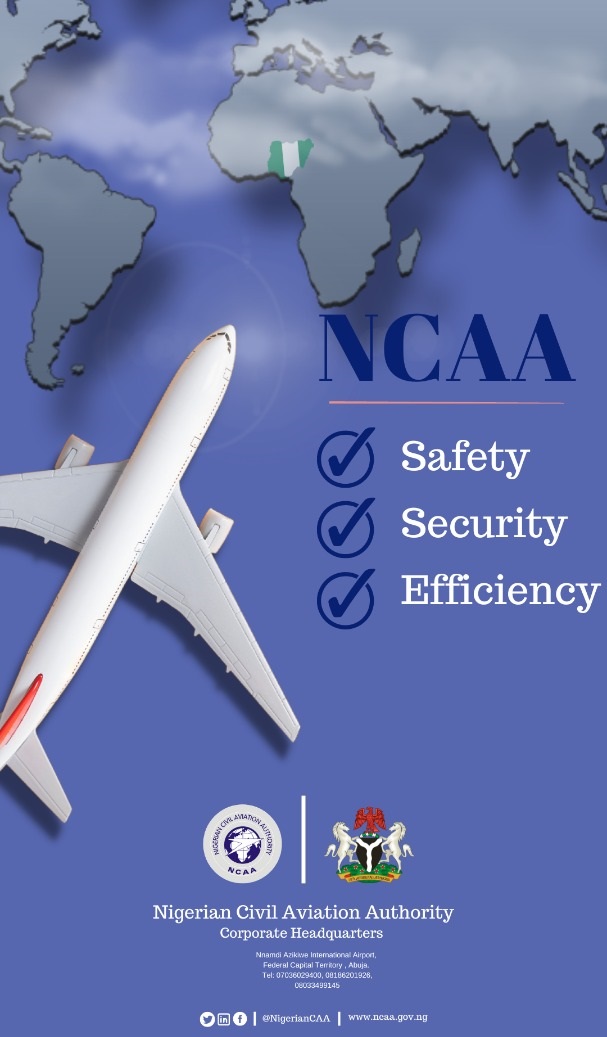
The annual LAAC Conference of 2019 was an outpour of rhetoric of blames on the government by the operators than on themselves especially by the private airlines.
The blames ranged from the lack of financial support from government to the private airlines to boost their investments in the sector. The blames also included government “policy” that substantially exclude domestic airlines from Bilateral Air Services Agreements (BASAs) operations which many believed are skewed to favouring and benefitting foreign airlines more than the domestic airlines.
At the event nobody reflected on the private airline earnings nor mentioned the additional government intervention funds of over ₦200 billion to the earnings that was given to six private airline operators in 2010 and 2012 to sustain their operations. There were also no mention of the government wavers of custom duties on imported spares for the domestic airlines aircraft nor the removal of Value Added Tax (VAT) on private airline earnings and so forth. Yet in spite of all these financial concessions, many of the private airlines still incurred huge and recurring debts to the government services providers on their operations.
Rather than the private airlines presenting their score cards on investments and earnings in the sector and aligning same with the theme of the event – *Boosting Aviation with Investment* , the talks at the event turned out to be what the event hall is called: ‘IJAKADI’ (Fighting) with government. The only time earnings were mentioned in line with the theme of the conference was from a paper delivered by the President of ART on behalf of Dr. Harold O. Demuren, a former Director General of Nigerian Civil Aviation Authority (NCAA).
Dr. Demuren’s Paper as delivered by Dr. Gbenga Olowo presented a figure of $632 million as the aviation sector contribution to the National GDP; this figure was not discussed nor contested to drive home the theme of the conference. The figure which contradicted the IATA figure of $8.5 billion as the GDP in 2016 could not have included the contributions of earnings from aviation allied services in the sectors like fuel marketers annual sales of 1,825 litters or $1 billion, ground support services charges from both public and private etc. For instance the earnings on about 7 million international and domestic passengers’ tickets and charges on about 200 million Kg cargo freights alone annually are believed to be about ₦2 trillion or $5 billion. These earnings do not include those of the chartered flights by private aircraft operators. The discussions at the conference did not even mentioned nor highlighted the taxes accrued to the government from the sector either in increase or decrease.
The government was accused of using its policies for suppressing the growth and ‘killing’ operating and prospecting airlines, but one would wish to ask; which government policy is killing or has killed airlines and which airlines were killed by government policies?
Government is blamed as if government is a lone person by itself; whereas, what is known generally as hindrance to growth in every political, social and economic sector are unilateral policies of exploitation of the existing policies by some individuals in political offices or position of authorities in government. These people cloaked or cloned as government are mostly political office holders involved in misadventure called by others as ‘policy somersault’. It is the turn by turn of various interests in ‘government’ be it in the ministries, agencies, departments and even at the National Assembly (NASS).
As there are divided political, social and economic interests at the various turn of governments, so also are divided and most times conflicting interests in the operations and regulations of aviation and its allied services. Not many and not even the operators think seriously about the providers of safety and security services as they do about the private airlines. There are those who would stoutly support some domestic airlines at any cost than the others; there are others who would support the domestic airlines against government agencies and there are those whose interests in foreign airlines are more than the domestic airlines. There is less interest or pity for the services providers from the airlines operators as if they can do it alone without their services.
Rather than believe in the rhetoric of the airline blames of government killing their businesses, there are historical evidence suggesting that the Nigeria airline operators themselves kill their businesses not government.
Are there records or evidence to suggest that it was government or its policies that killed airlines like Okada, Kabo, Bellview, Chanchangi, Sossolisso, ADC, Triax, Harka, Hold Trade, etc of the 80s and early 20s? Some of these earlier private airlines particularly, Okada, Kabo, Gas, Triax and DAS, between 1992 and 1995 flew more than 2000 flights for the ECOMOG Mission to Sierra Leone and Liberia with BAC-111, B-727, B-707 and B-747 and were earning $50,000.00 for the smallest and $120,000 for the biggest for a return flight. None of the operators of these airlines had evidence that they were not fully paid for their services to government. As bonus to their earnings, they paid nothing at both ends for landing, parking and air navigational services on any of the flights.
There are credible evidence showing that Nigeria Airways and ADC choose not to participate in the 3 years operation because according to them, their insurance policy did not cover their operation to war areas. These evidence also had it at that time that the Nigeria Airways management officials in the cloak of ‘government’ were selling economic tickets to senior government officials and their families and would put them in the first and business class at the expense of genuine passengers who were willing to pay the correct fares for the seats. Many Nigerians including most at the conference believed that it was ‘government’ who killed the Nigeria Airways and not the individuals exploiting or compromising their position of authority unilaterally.
Many of the operating private airlines of today are not financially healthy and are substantially not in compliant with the economic regulations of the Nig. CARs, because most of them are probably recycling the business plkans of the earlier or defunct airlines; otherwise airlines like the Arik Air could not have incurred a debt of over ₦300 billion within 4 years of its operations. The earlier operators main interest in the commercial aviation was to daily count the number of passengers and their earnings; the daily operational cost was not much of their concern. However, when it was time for major repairs like the C – checks, they abandoned the aircraft which in any case were very old for any repair at a cost almost at the initial price of the aircraft.
If private airlines are not financially health, there can be no appreciable investment for boosting the sector. Would government alone continue to invest in the sector and at the same time be providing financial support with public fund for the private airlines that have no key performance indicator programme in their business plans?
Just as the CAA, the FAAN and NAMA Acts compel them to provide and maintain essential services for safe operations of international and domestic flights at all Federal Airports and within the Nigeria aeronautical Airspace or FIR. The Agencies responsibilities do not relieve the airline operators the burdens of responsibilities to comply with the safety regulations and to pay for the services provided for them as demanded by the NCARs. The noncompliance or neglect of these responsibilities have serious consequences on the sustenance of operations and therefore on earnings on both side of the divide.
Many stakeholders are wondering why some of the earlier private operators are not always invited to occasions like the LAAC’s events to tell stories of what or who killed their businesses or kicked them out of commercial aviation? Many would also wish to ask them what happened to the earnings they made in dollars from the 2000 flights during the ECOMOG operations. If Alhaji Dan Kabo has died, what about Chief Igbinedion of Okada Air who is living but also divested his proceeds from aviation to build a university or Chief Arthur Eze the operator of Triax who also divested to oil business? Captains Okon, Omame, Udom and Alakija of ADC were age long pilots with the Nigeria Airways before they formed the ADC are very much alive and should be in a better position too to tell the new comers in the industry if it was true the government that killed their commercial aviation businesses when it went under in 2007.
At about 2007 ‘government’ gave ₦19.5 billion as intervention funds to 6 government aviation agencies, a large part of which came from a loan facilitated by ‘government’ from a private bank at 25% interest. Two years later, the same ‘government’ gave over ₦200 billion to 6 private airlines at 6% interest from the CBN and BOI. The ‘government’ later gave zero duties to the airlines on imported aircraft spares. At an earlier event this year, we were told by the MD NAMA that over 12 containers of spares and equipment for critical communication and radar belonging to the agency a ‘government’ agency have been at the Apapa Wharf for over 5 years because of its inability to pay custom duties. Discerning minds may wish to ask; which ‘government’ policy gave zero duties to the private airlines and could not give same to its own agency? Or which ‘government’ policy gave ₦19.5 billion intervention funds to 6 of its agencies mainly services providers from a private bank as loan and at 25% interest rate and gave over ₦200 billion to six private airlines and their banks at 6% interest from the CBN and BOI? What could be the role of the private banks in these two ‘government’ interventions or policies’?
Not many know that besides the BASAs which some stakeholders believe is being manipulated to favour the foreign airlines, there are Commercial Agreements which initially was managed by the defunct Nigeria Airways and the Ministry of Aviation. At the demise of Nigeria Airways, the management of the commercial agreement became the responsibility of the ministry only. Today, it has become the unilateral responsibility of some individuals we call or clone as ‘government’ whether or not they are in ‘government’. It is this Commercial Agreements not BASA that are manipulated for increasing the frequencies allocations and multiple destinations for foreign airlines. In the life time of Nigeria Airways, the revenue earnings on Commercial Agreements went into the Federation Account for the government civil aviation operators’ benefit but no one is sure who are those benefiting from the earnings today.
Let’s be practical with sincere re-evaluation; we need to stop blaming everything on ‘government’ but ourselves. Boosting Investment in the Nigeria Commercial Aviation today demands more now on the domestic airlines, private aircraft operators and allied services especially as government is planning to concession its airports and possibly commercialise the services providers. It should not always be ‘take’ or ‘get’ interventions funds from government by private airline investors, there must be accountability of returns on government intervention to private and public investment. There was no evidence that those airlines that benefited from past interventions have substantially refunded the funds.
One of the agitations among the stakeholders especially from the private airline operators and those who seemed not to have sufficient knowledge of the failure of the business plan of their predecessors, is the demand for government support to designate some of them as either flag carriers or national carriers midwife by Nigerian experts. The solution is not necessarily having a national carrier midwife by the ‘Nigeria experts’. Otherwise, how could ADC not have survived under the management of four Nigerian captains from Nigeria Airways, or how could Aero collapsed under the Nigerian expert management with 2 years the British Technical Experts left the Airline
Nigeria Airways stayed that long economically because it was a trade venture nurtured and more involved in international practices than local commitments both in technical and in financial management. It started losing that prowess when the ‘government’ policy brought the private airline operators into the trade. The policy eventually graded the Nigeria Airways to a ‘government’ airline rather than a national carrier we thought we knew it to be.
There are of course desperate promoters of government airlines rather than national carriers. “Government Carriers” are managed by political office holder who would do anything and everything only for political or personal gains and not for national interest. They are in contest any day with the private operators and could be in political opposing side representing some personal interest. Like Virgin Nigeria that was never a national carrier but a private airline disguised as a government airline and with the support of some political office holders. That explains why it was cleverly eased out of the business by the successor ‘government’ after the end of the term of the political owners.
The Nigeria private operators are not and can never be a national carrier but a flag carrier, for as long as there are other intentions from other contenders in government for ‘government’ carrier rather than a national carrier. Designating any private airline as flag carrier on BASA routes should not be a political pronouncement but a grounded government policy which must be based on successful performance of the airline from the NCAA Audit Report of five years each to advance progressively from domestic operation to regional, continental and intercontinental operations.”
Retired Group Captain is the Chief Executive Officer at Centurion Security and General Secretary of Aviation Round Table ( ART)


